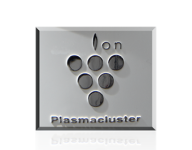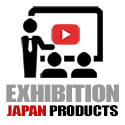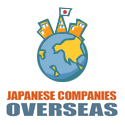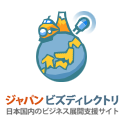Air Purifiers – Sharp’s Plasmacluster
- Company Name: Sharp Corporation
- City/Town/Village: Osaka
- Street: 22-22 Nagaikecho Abeno
- Country: Japan
- Zip/Postal Code: 545-8522
- Website: http://www.sharpusa.com
- Listed: 02/22/2013 2:28 pm
- Expires: This ad has expired
Sharp’s Plasmacluster technology Positive and Negative Ions Purify the Air.
- Suppresses the effects of airborne viruses. (Proven through experiments conducted in a 1 m3 box)
- Breaks down and removes allergens such as dust mite feces and dead dust mites.
- Breaks down and removes airborne mold and suppresses the proliferation of adhering mold.
- Removes odors that adhered to curtains, sofas, and other objects.
Plasmacluster health technology—only from Sharp
Plasma discharge generates and emits the same positive and negative ions that occur in nature. Plasmacluster technology is Sharp’s original air disinfecting technology for suppressing the effects of airborne viruses, and breaking down and removing airborne mold.
You can purchase Sharp’s Air Purifier products on Amazon, and check the special deal!
Our Website: www.sharp-world.com
Ad Reference ID: 6205127f0f6ae4ba








Japanese air purifiers are big in China
Sharp Corp. and Panasonic Corp., Japanese electronics makers struggling to recover from record losses, are boosting sales of air purifiers in China as pollution worsens in the world’s most populous country.
Sharp’s sales of the products, built mainly in Shanghai, tripled last month from a year earlier, Miyuki Nakayama, a company spokeswoman in Tokyo, said by phone yesterday. That’s spurring the Osaka-based manufacturer to increase output, she said. Panasonic’s production of air purifiers for the Chinese market in January were 50 percent above average monthly levels, Chieko Gyobu, a spokeswoman, said yesterday.
Air quality in Beijing deteriorated beyond World Health Organization safe limits every day last month as smoke from coal-powered plants, factory emissions, car fumes and dust amassed over the city. Official measurements of PM2.5, airborne particulates that pose the greatest health risks, rose as high as 993 micrograms per cubic meter in the capital Jan. 12, compared with WHO guidelines of no more than 25.
“The spike in demand may help Panasonic and Sharp,” said Mitsuo Shimizu, a Tokyo-based analyst at Iwai Cosmo Holdings Inc. “The Japanese companies have good technology.”
Continue reading »